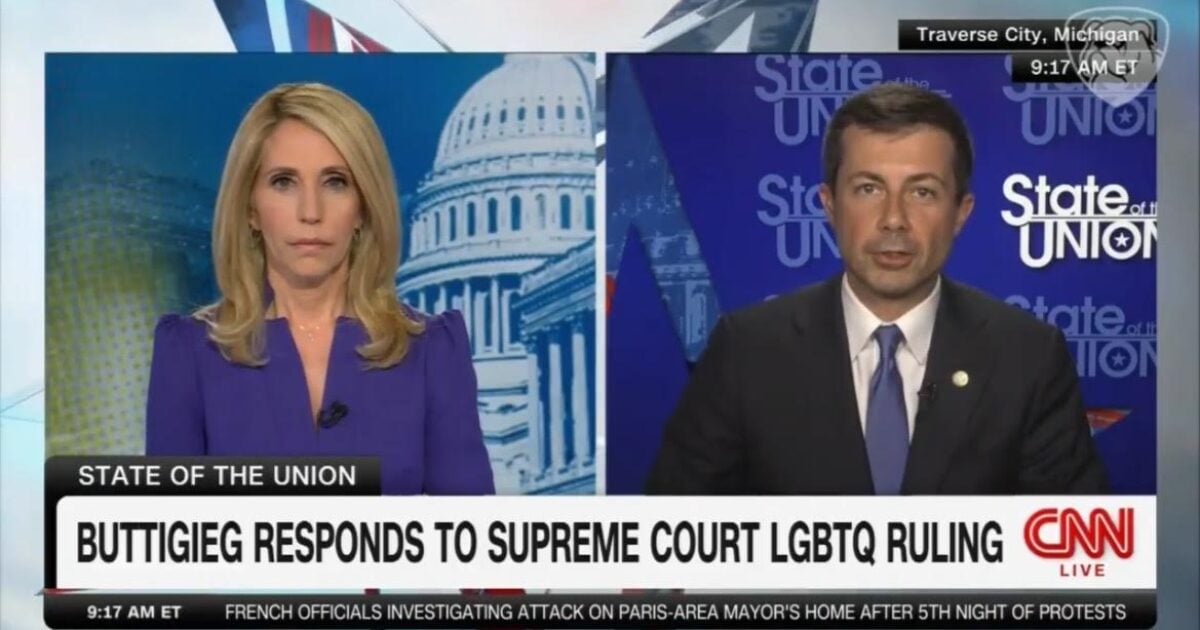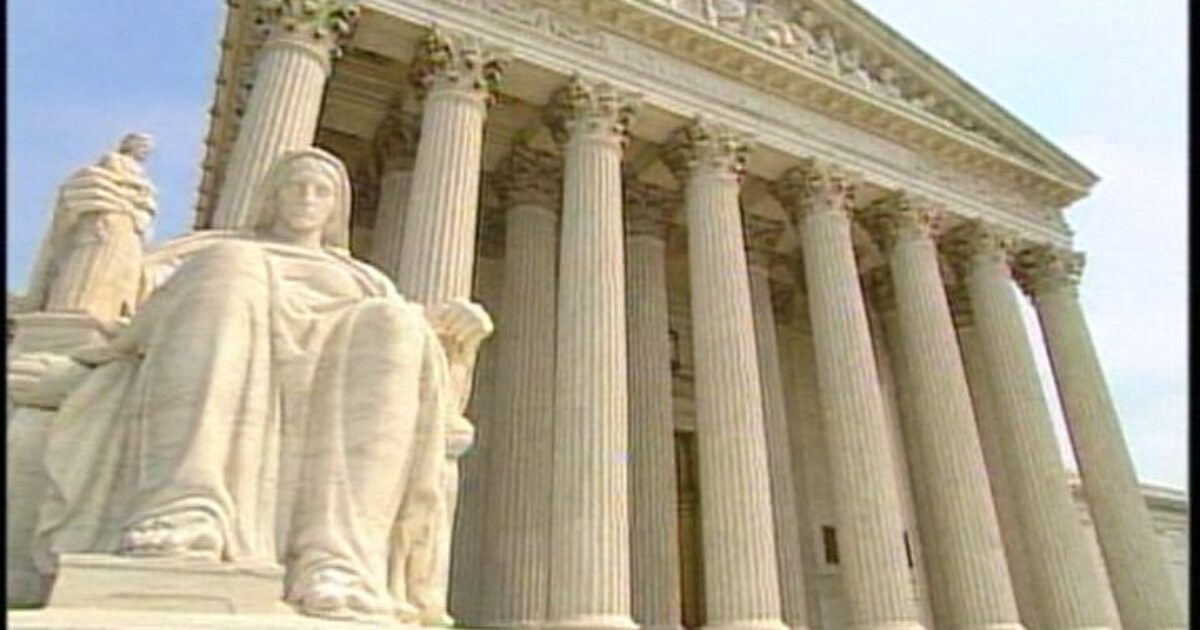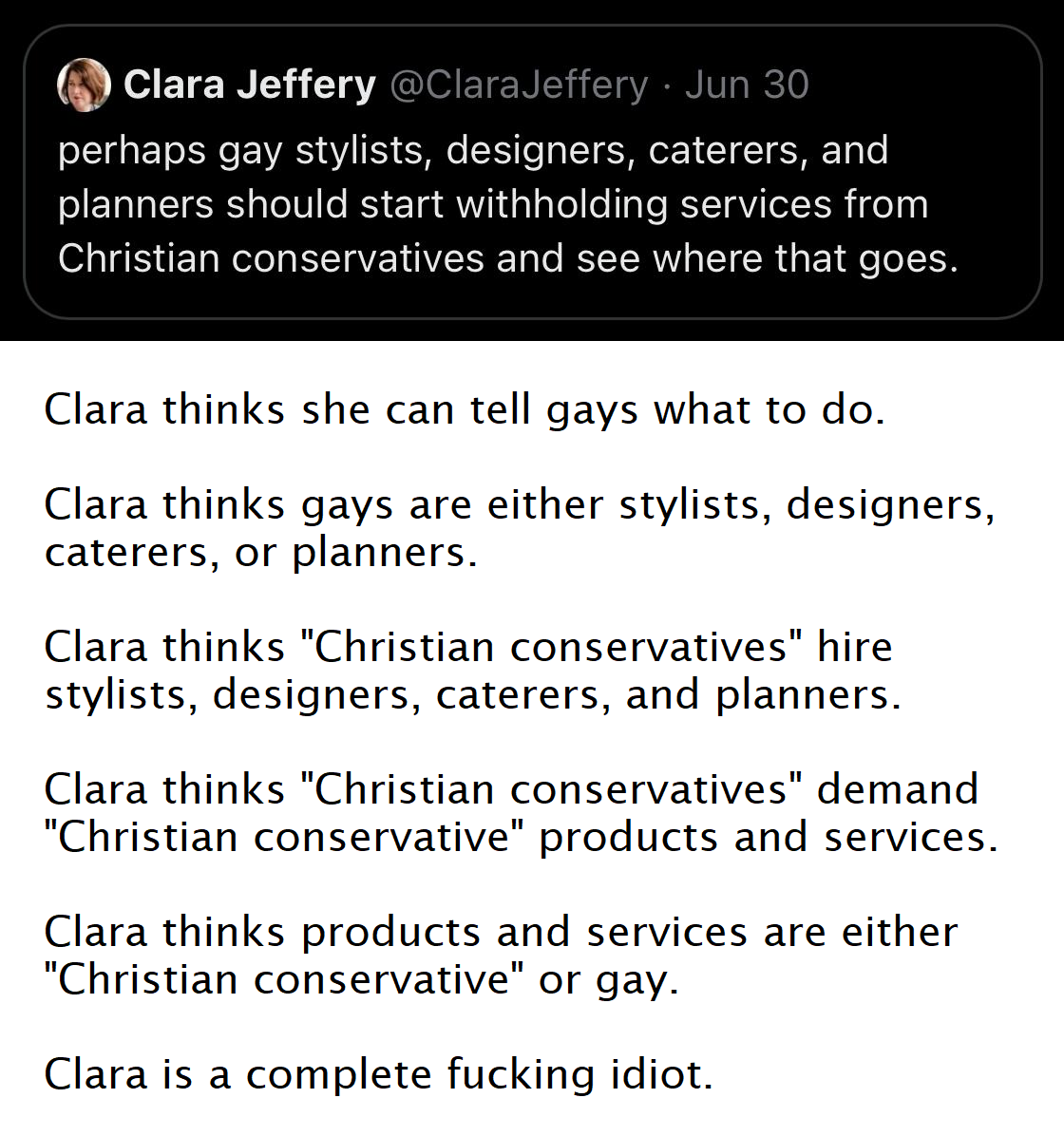You are using an out of date browser. It may not display this or other websites correctly.
You should upgrade or use an alternative browser.
You should upgrade or use an alternative browser.
Supreme Court Rules in Favor of Christian Web Designer Who Doesn’t Want to Make LGBTQ Wedding Sites >
- Thread starter roadreeler57
- Start date
Fuck off Buttigeig...

Jul. 2, 2023 2:20 pm

Pete Buttigieg Attacks Christian Web Designer at Center of Supreme Court Ruling (VIDEO)
Cristina LailaJul. 2, 2023 2:20 pm
2- Homosexual and transexual activists do not have the right to force you to do work for them. You have freedom of association. As with SO much these days, it never should have been necessary to clarify this, but thank God sanity prevailed. Read more about these eight points at the link. We offer three of them here.
The Federalist
8 Fire Quotes From Gorsuch In Landmark Free Speech Case
The Federalist
8 Fire Quotes From Gorsuch In Landmark Free Speech Case
QUOTE: Justice Neil Gorsuch offered a straight-fire defense of free speech and religious liberty in the U.S. Supreme Court's 303 Creative v. Elenis decision on Friday, which represented a major win for Americans' First Amendment rights.
As The Federalist's Jordan Boyd reported, the high court ruled that the government cannot force Colorado graphic artist Lorie Smith to "make wedding websites celebrating same-sex couples because it would violate her constitutional right to exercise her Christian belief that marriage is between a man and a woman." The high court further noted that such state-enforced coercion is a violation of Smith's First Amendment rights.
Writing for the majority, Gorsuch left little doubt the current court has a vested interest in defending Americans' rights to free speech and religious liberty.
Here's a list detailing eight of his best lines from the opinion.
1. Gorsuch blasted Justice Sonia Sotomayor and the dissent for distorting the facts of the case.
It is difficult to read the dissent and conclude we are looking at the same case. Much of it focuses on the evolution of public accommodations laws ... and the strides gay Americans have made towards securing equal justice under law ... And, no doubt, there is much to applaud here. But none of this answers the question we face today: Can a State force someone who provides her own expressive services to abandon her conscience and speak its preferred message instead?
When the dissent finally gets around to that question—more than halfway into its opinion—it reimagines the facts of this case from top to bottom.
2. State-enforced speech is a blatant violation of the First Amendment.
If [Ms. Smith] wishes to speak, she must either speak as the State demands or face sanctions for expressing her own beliefs, sanctions that may include compulsory participation in 'remedial . . . training,' filing periodic compliance reports as officials deem necessary, and paying monetary fines. ... Under our precedents, that 'is enough,' more than enough, to represent an impermissible abridgment of the First Amendment's right to speak freely.
3. The dissent's arguments in favor of coercing Smith's speech are illogical.
In some places, the dissent gets so turned around about the facts that it opens fire on its own position. For instance: While stressing that a Colorado company cannot refuse 'the full and equal enjoyment of [its] services' based on a customer's protected status ... the dissent assures us that a company selling creative services 'to the public' does have a right 'to decide what messages to include or not to include' ... But if that is true, what are we even debating?










